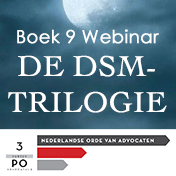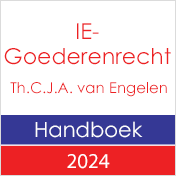
B9 9710. Persbericht Europese Commissie over de aangekondige nieuwe, grootschalige -'blauwdruk' voor IE-rechten in de EU.
The existing mix of European and national rules are no longer adapted and need to be modernised. That is why the Commission has adopted today a comprehensive strategy to revamp the legal framework in which IPR operate. The new rules will strike the right balance between promoting creation and innovation, in part by ensuring reward and investment for creators and, on the other hand, promoting the widest possible access to goods and services protected by IPR. The strategy deals with many issues to ensure IPR are covered comprehensively.
Among the first deliverables of this IPR overall strategy are today's proposals for an easier licensing system for so-called "orphan works" that will allow many cultural works to be accessible online (klik hier), and for a new regulation to reinforce customs actions in fighting trade of IPR infringing goods (klik hier).
The IPR Strategy sets out a series of short- and long-term key policy actions in various areas which include:
Patents: the Commission already launched proposals in April for a unitary patent protection under enhanced cooperation (see IP/11/470). Meanwhile, work will continue on proposals relating to the creation of a unified and specialised patent court for the classical European patents and the future European patents with unitary effect.
Trade marks: The Commission intends to present proposals in 2011 to modernise the trade mark system both at EU and national levels and adapt it to the Internet era.
Geographical indications (GIs): GIs secure a link between a product's quality and its geographical origin. However, there is currently no such system available at EU level for the protection of non-agricultural products such as Carrara marble or Solingen knives. This leads to an unlevel playing field in the Single Market.
Multi-territorial copyright licensing: While the substantive scope of copyright has been largely harmonised, rights are still licensed on a national basis. In the 2nd half of 2011, the Commission will submit a proposal to create a legal framework for the efficient multi-territorial collective management of copyright, in particular in the music sector. It will also establish common rules on the transparent governance and revenue distribution.
Digital libraries: The creation of European digital libraries that preserve and disseminate Europe's rich cultural and intellectual heritage is key to the development of the knowledge economy. To facilitate this, the Commission is also tabling today a legislative proposal that will enable the digitisation and online availability of so-called "orphan works" - see MEMO/11/333.
IPR violations: The Commission has tabled a regulation today that is to reinforce the European Observatory on Counterfeiting and Piracy, which it launched in 2009, by entrusting its tasks to the Office for Harmonisation in the Internal Market (OHIM). Secondly, in Spring 2012, the Commission will propose to revise the IPR Enforcement Directive (see IP/04/540).
IPR enforcement by customs: As part of today's overall IPR strategy, the Commission also proposes a new customs regulation, to further reinforce the legal framework for customs' actions. The proposal also aims to tackle the trade in small consignments of counterfeit goods sent by post as the overwhelming majority of these goods results from internet sales, - see MEMO/11/327.
Lees het gehele persbericht hier.



























































